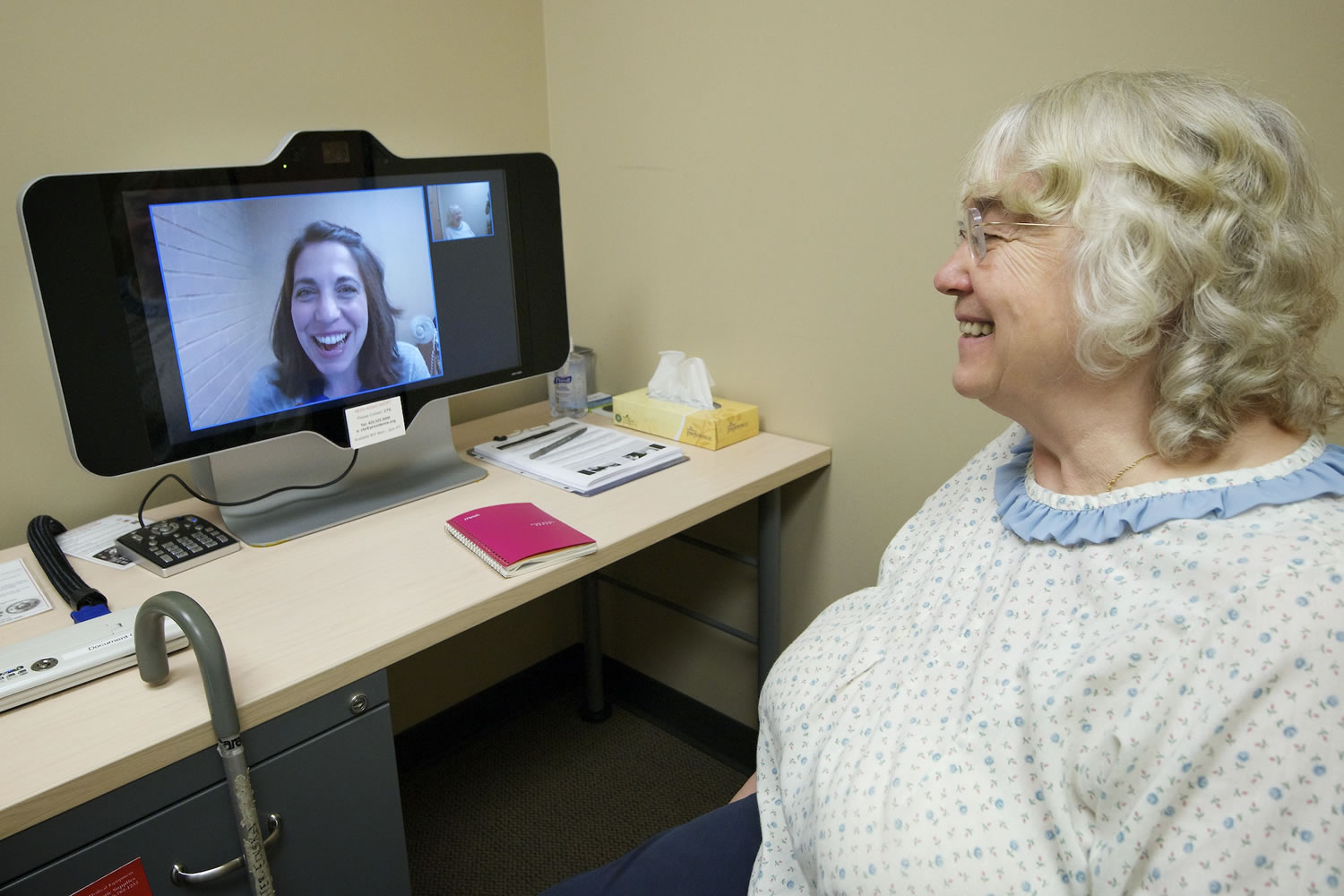After months of spiking blood-sugar levels and draining energy, Olga Veter-Eluska is finally figuring out diabetes.
She keeps a journal of everything she eats and her blood-sugar levels throughout the day. She’s realized fresh vegetable juice curbs her snack cravings and keeps her from “eating everything in sight.” Those efforts mean lower and more-stable blood-sugar levels.
Veter-Eluska said her newfound understanding is thanks to her diabetes educator, Juleeanna Andreoni.
The pair have met several times for one-on-one counseling sessions but they’ve never spoken in person. That’s because Veter-Eluska and Andreoni hold their educational sessions while sitting in medical facilities more than 20 miles apart — Veter-Eluska a few miles from her Vancou
ver home, Andreoni from her office at Providence St. Vincent Medical Center in Portland.
Veter-Eluska, 69, is one of more than 80 Clark County residents who have used Providence’s new diabetes telehealth program.
The program connects Clark County residents who use Providence’s Camas, Battle Ground and Vancouver clinics with certified diabetes educators at the Portland hospital. Rather than driving to Portland, patients go to the Providence clinic on Mill Plain Boulevard and use a computer in a private room for a one-on-one video chat with an educator.
“There’s no reason why people should need to drive in to hospitals,” said Kathy Schwab, diabetes manager for Providence’s Oregon region. “This is the future of where health care is going.”
The program is still in the pilot phase, but its early success means it will continue — and expand to other clinics in the region — once the pilot ends in August, Schwab said.
From mid-February to mid-June, the Mill Plain clinic had 127 telehealth visits. Feedback from patients has been overwhelmingly positive, Schwab said.
Nearly everyone has ranked the program equal to or better than an in-person visit. And that’s true for patients of all ages and ethnicities; non-English speakers have successfully used interpreters during telehealth visits, Schwab said.
Margaret D’agostino, clinic manager for Providence’s Mill Plain and Camas offices, said she was initially skeptical. As a nurse, she knew patients like face-to-face interaction. She worried they wouldn’t accept a video conference as a replacement.
“I’ve been very pleasantly surprised,” D’agostino said. “It’s just been an outstanding service for our patients.”
Veter-Eluska first learned of the program in January, after she found out her Type 2 diabetes was spiraling out of control. After unsuccessfully managing the disease on her own, Veter-Eluska realized she needed help.
Her physician recommended the telehealth program, and Veter-Eluska was quick to take advantage of the new service.
“The alternative was for me to drive to Portland,” Veter-Eluska said.
Because the diabetes has left Veter-Eluska feeling less alert, she doesn’t feel comfortable driving across the river. She also worries the stress from making the drive would affect her disease.
“What Olga is saying is true for almost everyone living there,” said Andreoni, her diabetes educator.
Many patients — like Veter-Eluska — think they can manage the disease on their own. They expect educators will just tell them to stop eating the foods they like and start exercising, Schwab said. So they don’t seek the additional help, she said.




